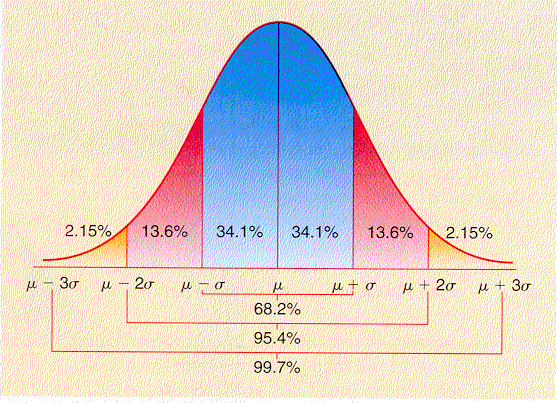
I recently read a
column by Tom Friedman that asked, "Where did the 'we' go?" in America. This was in reference to the perceived splintering of our ideology, since (in the view stated in the column) the presidency of Bill Clinton. This led me to ponder the fact that in many other countries around the world, there are essentially "official splinters" among the population. There is often a dominant splinter, or at least one that remains dominant most of the time, and a number of minority splinters. One good example among many others is Lebanon, where the constitution requires that certain governmental positions are reserved for members of certain official splinter groups. In other countries, there are splinters that inhabit certain regions; within that region the national minority is in the majority, and the laws of that region reflect the fact. Finally, another way that various countries deal with these official fragments of their society is by having different laws for different splinters, generally based on religious affiliation as far as I know. We have seen many cases of this in the East (e.g., the recent case of the Muslim woman sentenced to a whipping for drinking a glass of beer, a law that doesn't apply to nonmuslims--mostly rich foreign tourists), but in Europe, for example, governments have collected tithes that are in turn rendered to churches as part of their normal tax collection activities, and we have even recently seen in England a statement by a judge that Sharia law might be applied
by the British government to Muslims living in that country. Given how widespread these practices are around the world, perhaps they have some value in allowing the nation to live in peace in spite of the formidable ideological, cultural, and religious divides that they contain.
Whether they have any value or not, in this country, it would be almost impossible for us to use any method that officially recognized any of our splinter groups. The closest we get to this is our system of states, each which has a somewhat separate set of laws and courts. However, even from the very beginnings of our nation, every one of our states has contained significant minorities that exist across state boundaries. That is, while the creation of states from the former colonies respected the property holdings and power structures that existed before the Revolution, states have never done a very good job of facilitating the official expression of minority preferences in the nation as a whole.
But wait a minute (you might interject): what about democracy? Doesn't democracy itself automagically respect the rights of minority groups?
Well, not at all. In fact, one of the concerns of the Constitution and Bill of Rights was to set up a system of explicit rights and checks and balances that would not allow the "tyranny of the majority". By its majoritarian nature, democracy is inherently a "clumper" rather than a "splitter", when it comes to allowing the official expression of minority positions in policy and law.
One of the clearest examples of where our insistence on an unfragmented national policy is the animosity between North and South over slavery and other matters that led to our second revolution, the Civil War. Many in the South (John C. Calhoun being perhaps the prime example) attempted to get the national government to allow fragmentation of our laws (beyond that regarding slavery per se), by allowing states to disregard Federal laws that they did not agree with, substituting their own. If they had been allowed to do this, who knows what the course of history would have been? Perhaps there would have been no Civil War; perhaps there would now be more than one country instead of a single USA. But regardless of that, a terrible war was fought over the matter, and as a result, it is now almost unthinkable to allow the kind of fragmentation in our laws that was contemplated in the past by the Calhouns, the Wallaces, and the Thurmonds.
But what if there could be? What if there could be different laws for different religions? Or states set aside, with their own local laws that reflect the preferences of a national minority?
Some have stated that there are around 6 million Muslims currently living in the US. Well, that is about the number of people living in the "average" US state: the state of Missouri has around that number of residents. What if there was a national Islamic homeland, with Sharia laws even (applying only to Muslims!)? "Missouristan"? Would there be any benefit to that? Would it increase or decrease discrimination towards Muslims in our country? Certainly within "Missouristan" there would be less discrimination; in fact, there would inevitably be a certain degree of discrimination toward nonmuslims. Would this be any more strange than the situation in the state of Utah? And what if Utah was allowed to drift further towards a truly Mormon state? Would Glenn Beck finally find the validation he appears to seek?
But using territory is only one method to deal with splintering, and it is very limited. The question is, how much room do we have to create splinter territories? And it's also important to remember that individuals can belong to more than one splinter group, but can reside in only one state at a time. The second method, which is probably more radical from the standpoint of the USA, is to have a fragmented legal system. That is, for members of certain churches or other groups, abortion would be murder; for members of other groups, it would be a protected right. For certain groups, same-sex marriage would be forbidden, for others it would be allowed. Other possible issues: multiple marriage, use of certain drugs, even laws regarding personal attire (head covering, face covering, leg covering) and the content of education (Bible or Koran classes, sex education classes, biology classes).
Probably they best way to do this official splintering would involve both of these things: territory splits for large, relatively homogenous groups (this would give full meaning to "solid red" and "solid blue" states, among other things), but also a system of laws that reflected one's personal identification with a minority, in the context of a splintered environment. That is, individual states as well as the federal government would have a set of "default" laws that applied to all, but also a set of identity-specific laws that applied only to those that had declared themselves to be a member of that identity group. The main thing that would happen from state to state is that one state's default law would be another state's special identity law.
So right now, I'm pondering a USA which has embraced its fragmentation and institutionalized its diversity. Along with Missouristan and Utah, there would be a large Fundamentalist region, probably mostly rural and Southern. Maybe there would be a secular region along both coasts. My identity as a Humanist would free me from such laws that would apply to my Baptist neighbors as tithing, prohibition of alcohol, and porn, but would not allow me to take religious holidays or be married by a minister. It would be a very strange place indeed.
It would be the end of the "melting pot", but maybe (at least according to Friedman) the pot may have been cooking too long, and the sauce, once nicely melted, has begun to curdle and to separate into chunks. As most cooks know, once that starts, further cooking will only make things worse. Maybe if we are to survive as a nation, it is time to reconsider our fondu metaphor and pick up another one--for example, the Canadian "salad bowl" might serve. And if we do this, then perhaps we might also reconsider our Constitution and legal structure in order to facilitate the transition. Hopefully, this time, we would be able to do it without an actual Civil War.
Greg Shenaut
.jpg) It appears that no one knows quite what to make of the vicious attack at Fort Hood allegedly committed by US Army Major Nidal Hasan, resulting in the deaths of at least 13 individuals. The main debate appears to be between two camps: (1) those who see this as an act of mass murder, possibly due to mental illness of some kind or to a mind confused and corrupted by extreme Islam; and (2) others who see this as an act of Islamic terrorism. As a random philosophizer, I'm not real happy with either of these analyses, and I want to give my reasoning as to why Hasan should not be charged either with terrorism or with murder, but instead should be charged with treason.
It appears that no one knows quite what to make of the vicious attack at Fort Hood allegedly committed by US Army Major Nidal Hasan, resulting in the deaths of at least 13 individuals. The main debate appears to be between two camps: (1) those who see this as an act of mass murder, possibly due to mental illness of some kind or to a mind confused and corrupted by extreme Islam; and (2) others who see this as an act of Islamic terrorism. As a random philosophizer, I'm not real happy with either of these analyses, and I want to give my reasoning as to why Hasan should not be charged either with terrorism or with murder, but instead should be charged with treason. 



